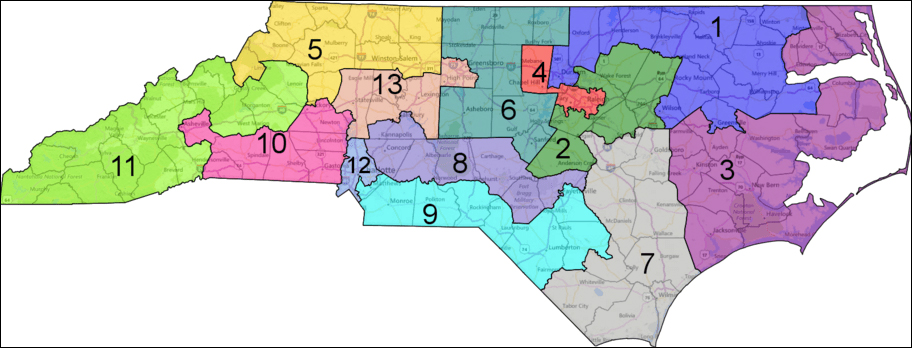By Jim Ellis
March 1, 2019 — North Carolina Gov. Roy Cooper (D) announced the special election schedule for his state’s 3rd Congressional District, vacant since 13-term incumbent Rep. Walter Jones (R-Farmville) passed away on Feb. 10.
Candidate filing will close March 8, a short official period largely because eight individuals have already declared their candidacies. The partisan primary elections will be held April 30, followed by runoff elections, if necessary, on July 9. A secondary election will occur if no candidate receives at least 30 percent of the vote in their respective nomination election.
Should all parties nominate on April 30, then the special general will move to July 9. Otherwise, the final vote will be held Sept. 10. It is presumed that the State Board of Elections members, who have the power to schedule the succeeding District 9 election because no general election winner was certified, will follow the governor’s lead on Monday and schedule that special election within these same schedule guidelines.
With six Republicans, including three sitting state representatives already in the race, and more likely to come, the chances of the GOP being forced to hold a runoff election are extremely high.
At this point, only one Democrat, activist Daryl Farrow who is viewed as a minor candidate, has committed to running. It is clear, however, that the party will file a credible contender in order to fight for the seat.
The voter registration figures reveal just how fast the state is growing, underscoring that North Carolina is assured of gaining one new congressional seat in the 2020 reapportionment, with the outside possibility of adding a second. In the 3rd District, 495,723 individuals were registered to vote at the beginning of last year, suggesting an extremely high total population base.
Despite President Trump racking up a huge 61-37 percent victory percentage over Hillary Clinton here, Mitt Romney recording a 59-41 percent winning margin against President Obama in 2012, and Rep. Jones not even drawing a Democratic opponent in the 2018 general election, the total number of registered Democrats actually exceeds the Republican figure. Democrats see 35.7 percent (177,029) of the registered universe identifying with their party as compared to 32.5 percent (161,253) who joined the Republican Party. An additional 154,735 (31.2 percent) are unaffiliated, while 2,706 (0.5 percent) people are Libertarian Party members.
The 3rd District occupies the majority of territory east of Interstate 95, starting at the Virginia border and including most of the Outer Banks region until stopping at the Surf City community border. NC-3 contains 16 whole counties and one partial. It’s three largest population centers are the cities of Greenville, Jacksonville, and New Bern.
So far, the seven announced Republican candidates are (alphabetically):
- Phil Law – Technician; Marine Corps veteran; 2016/2018 congressional candidate
- Jeff Moore – Former gubernatorial aide
- Greg Murphy – State representative; Greenville
- Michele Nix – NC Republican Party vice chair
- Phil Shepard – State representative; Jacksonville
- Sandy Smith – Accountant
- Michael Speciale – State representative; New Bern
Several others, including state Sen. Bob Steinburg (R-Outer Banks), and 2018 congressional candidates Taylor Griffin (who also ran in 2016) and Scott Dacey could also enter the special election GOP field. As mentioned above, the party candidate fields will be set a week from now, Friday, March 8.

